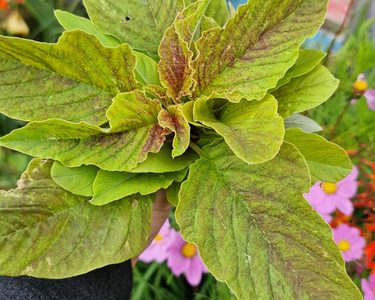The ultimate climate change crop

During 2023, 72 growers from Cornwall to the North of Scotland reported back on their experience of growing amaranth.
Citizen scientists compared the performance and taste of three varieties of this leafy green that have adapted to the UK climate. This crop has more commonly been grown as an ornamental called ‘Love Lies Bleeding’ in the UK, with only immigrant communities from Jamaica, India and Bangladesh growing it to eat.
Our study found the crop was very productive. At Ryton, we harvested more than a kilo of leafy material from a single cut in July, which then regrew to almost its original height in 10 days. On average, other growers harvested around a kilo of leaves – and in Lincolnshire one grower bagged 7.6kg!
Pests and diseases were few and far between, with slugs being the most common problem reported. Up to 91% of participants ranked the flavour of amaranth as neutral or pleasant, with ‘earthy’ being the most common characteristic.
Access to diverse seeds like these is a key strategy to ensure we’re able to continue to produce food in a more unpredictable climate.
To read the full report, click here.